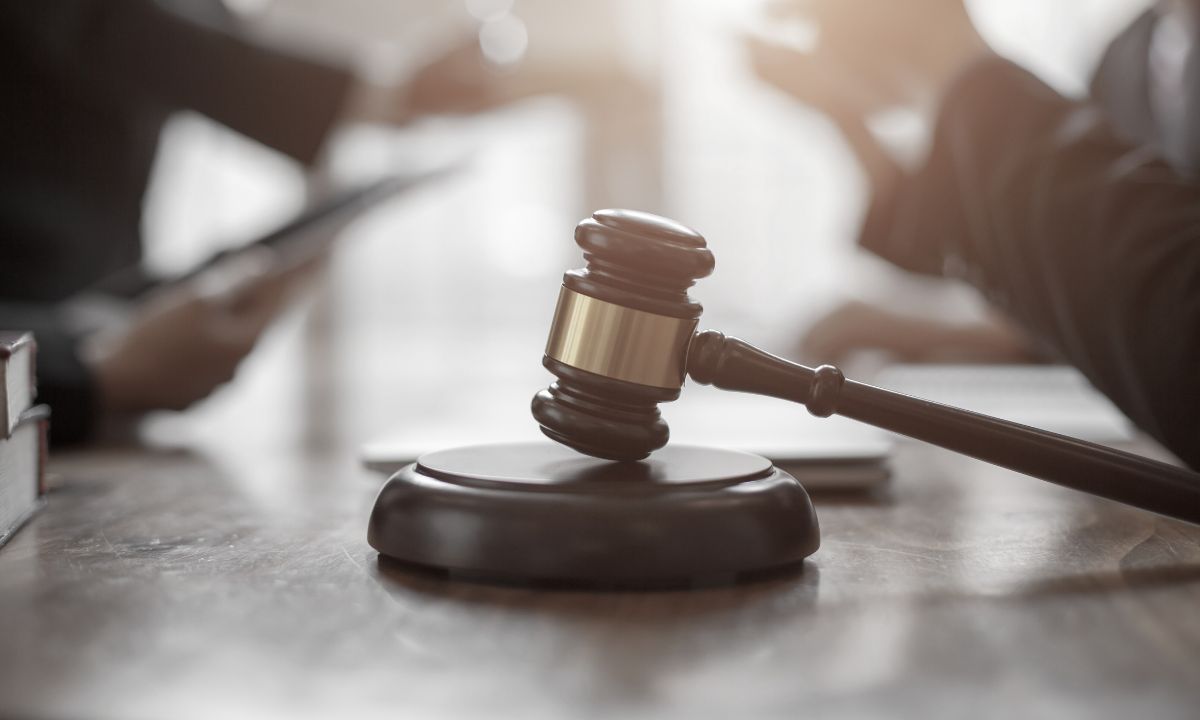According to the U.S. Census Bureau, Florida is one of the top states when it comes to population growth. With more people, of course, comes more traffic. Roads and parking lots in Florida are increasingly congested and, because of this, commuters often choose the simplicity and expediency of a moped or scooter. Both are affordable, simple to operate, and readily accessible.
This makes scooters and mopeds an easy, economical choice for commuters and tourists alike. Sales for these vehicles have increased up to 60% in the past 25 years.
Despite these advantages, however, mopeds and scooters are often operated by distracted drivers. This can raise the likelihood of a severe injury or death compared to an accident between two automobiles.
Motorcycle accident lawyers are an invaluable resource for people who are injured in these types of accidents, but are mopeds and scooters considered the same as motorcycles when it comes to motorcycle accident lawsuits and getting compensation for your damages?
Motorcycle, Motor Scooter, and Moped: Understanding the Differences
The differences between a motorcycle, motor scooter, and a moped are apparent when looking at them:
What Is a Motorcycle?
National Highway Traffic Safety Administration (NHTSA) defines a motorcycle as a motor vehicle with a seat for the rider that travels on no more than three wheels. It leaves specific terms and vehicle descriptors to individual state governments for regulation purposes.
Florida Highway and Safety Motor Vehicles (FLHSMV) uses NHTSA’s definition and includes autocycles, but excludes mopeds and tractors.
A motorcycle engine is louder, has a dual-clutch transmission, and has footpegs rather than a footrest platform. In addition, motorcycles have larger wheels, generally more than 16 inches, to allow them to accelerate to higher speeds.
Similarities and Differences Between Motor Scooters and Mopeds
Mopeds and scooters are sometimes confused because they look similar. They both travel at speeds slower than a motorcycle; therefore, have smaller wheels, measuring 10 to 16 inches.
They both have footrest platforms with engines situated more toward the back; however, mopeds typically have pedals, whereas most scooters do not.
The following are additional factors that determine whether a vehicle is a moped or a scooter:
A moped has:
- A seat for the operator
- Pedals that allow you to use your feet to propel the vehicle
- Three or fewer wheels
- A two-brake horsepower motor or smaller
- A maximum of 30mph on level ground
- A power-drive system that works automatically, so the driver doesn’t have to change gears manually
- Engine displacement of 50cc or lower (for those with an internal combustion engine)
Most motor scooters are equipped with:
- Twist and go throttles connected to continuously variable, or automatic, transmissions.
- Left-hand-activated rear brakes.
- Larger engines than mopeds, typically between 50cc and 250cc, though some are sold with engines up to 850cc.
- A step-through chassis.
A motorized scooter is another type of scooter that Florida statutes section 316.003 defines as:
- Not having a saddle or other seat for the rider. The operator stands while riding.
- Having at least three wheels.
- Operating at a maximum speed of 30mph on level ground.
How Two- and Three-Wheeled Vehicles are Classified in Florida
Individuals need to be aware of which classification their two- or three-wheeled vehicle falls under due to the different requirements for each.
If your vehicle exceeds the Florida state guidelines for mopeds and motorized scooters, it is considered a motorcycle. These vehicles will be held subject to all Florida motorcycle licensing and registration laws.
Motorcycle Requirements
According to Florida Statutes section 320.01, a motorcycle is a vehicle with three or fewer wheels and a saddle or seat for the rider to sit on. A driver of any such vehicle with an engine over 50 cubic centimeters (cc) displacement must have a motorcycle endorsement on their license, according to the Florida Department of Highway Safety and Motor Vehicles (FHSMV).
Driving a motorcycle without the proper license to do so could result in penalties, including fines, probation, and even jail time.
Moped Classification
Florida law specifically excludes mopeds when defining a motorcycle. Therefore, mopeds are not considered motorcycles. Moped drivers must carry a Class E driver’s license and be age 16 or older to drive on a public road.
Once classified as a moped, you must register the vehicle at the local county tax collector’s office. If you are under the age of 21, you will have plates that are distinguishing in color and design.
Registration is $5, but there may be more money involved because of other statutory fees and titling fees. Once the moped is legally drivable, riders must understand that they are not allowed to ride in bike lanes or on sidewalks.
All passengers that are age 16 and younger must use a helmet. Moped drivers may carry Personal Injury Protection Insurance, but it is not required for registration.
Motor Scooter Classification
According to the Florida Department of Highway Safety and Motor Vehicles (FHSMV), Florida law does not define “motor scooters” as a distinct vehicle type, so they are considered motorcycles in this state.
This means that if your motor scooter has a seat and an engine with a displacement of more than 50ccs, you must have a motorcycle endorsement on your license to operate it.
Motorized Scooter Classification
Motorized scooters are not typically considered motorcycles, and they do not require a special license to operate.
You do not have to register or title a motorized scooter. You cannot drive a motorized scooter on the sidewalk or bike lane. There are also no insurance requirements in Florida regarding the operation of a motorized scooter.
If your motorized scooter exceeds the definitions within the aforementioned classification list, then it is classified as a motorcycle and is subject to Florida’s laws regarding motorcycle license requirements.
Take Care Before You Ride
Moped, scooter, and motorcycle riders are involved in traffic crashes at substantially high rates. Between the years 2002 to 2008—the last formal record of crash outcomes—there were about 5,660 collisions. Of these, 18% resulted in fatal injuries. Most of these scooter, moped, and motorcycle accidents were in urban locations.
That doesn’t mean that there aren’t non-fatal and fatal scooter, moped, or motorcycle accidents in rural locations. Over 35% of rural crashes resulted in severe injury compared to only 25.7% with non-severe injuries. Considering the growing usage of mopeds and scooters, one can assume that these numbers have increased.
Common Injuries Experienced After a Scooter, Moped, or Motorcycle Crash
If the rider isn’t wearing proper protective gear, scooters, mopeds, and motorcycles can cause severe injuries including:
- TBIs or traumatic brain injuries
- Brain damage
- Arm injuries and leg injuries including lacerations and broken bones
- The loss of limbs
- Head injury
- Spine injuries
- Nerve damage
- Spinal cord injuries
- Internal injuries including ruptured or damaged internal organs
- Road rash
- Emotional suffering
All of these catastrophic injuries are expensive to treat, often leaving victims with thousands of dollars of out-of-pocket costs for medical expenses and requiring days or months of hospital care. Additionally, your insurance provider may deny your insurance claim.
If you were an injured rider in a scooter, moped, or motorcycle crash, talk to an experienced Florida motorcycle accident attorney today.
A motorcycle accident lawyer will discuss your rights and they can help you file a personal injury lawsuit against the at-fault driver and ensure you receive fair compensation for damages. Winning a claim for compensation may be your best bet for staying afloat.
Obtaining Your Motorcycle Endorsement
If your vehicle is classified as a motorcycle and you need a motorcycle endorsement on your Florida driver’s license, you should follow these steps:
- Ensure that you have at least a standard Class E driver’s license. If you don’t have this license, you may be able to get one that is valid for a “motorcycle only” instead.
- Secure an authorized sponsor to administer your safety course. This can be either the BRC (Basic Rider Course) or BRCu (Basic Rider Course updated).
- Take your safety course certification to your local DMV office and request that they add a motorcycle endorsement to your license. You must do this within one year of completing the safety course.
Contact an Experienced Motorcycle Accident Lawyer Today
If you were involved in an accident due to another person’s negligence, please call the attorneys at Dolman Law Group Accident Injury Lawyers, PA, for a free consultation and evaluation. The law is unclear in some respects where mopeds and scooters are concerned, and our personal injury lawyers can help you navigate these gray areas.
As motorcycle accident lawyers serving all of Florida, including Tampa Bay, Clearwater, and St. Petersburg, we are here to represent the interests of injured bikers, scooter operators, and moped drivers involved in accidents with a negligent driver.
Our motorcycle accident injury law firm is committed to handling negotiations with insurance companies or advancing your legal claim into litigation if the insurance carrier refuses to evaluate your claim fairly. Call to schedule your free consultation today.






